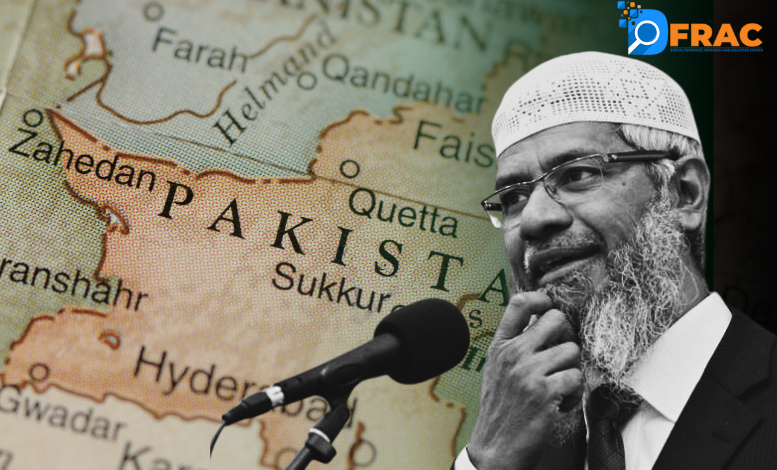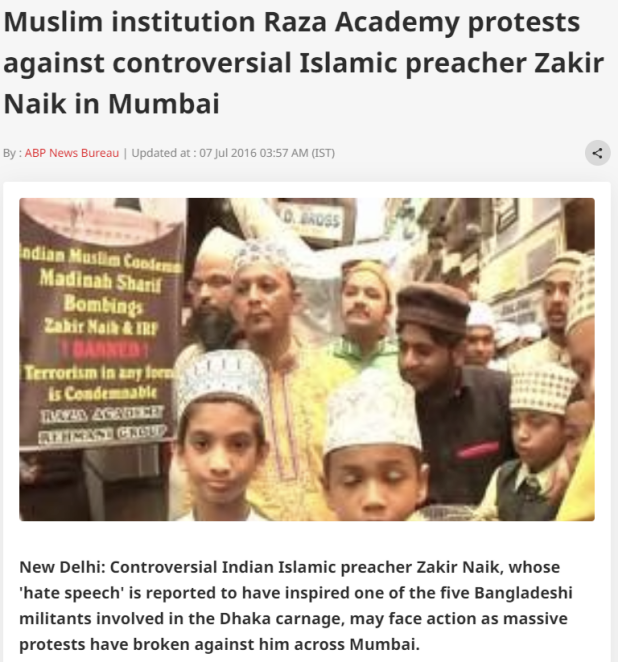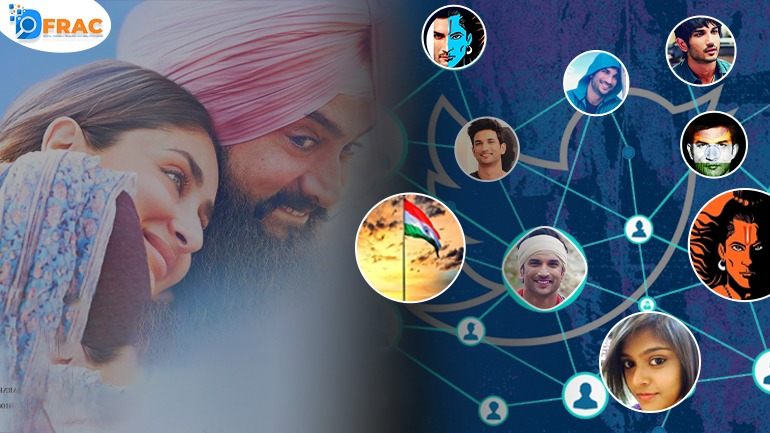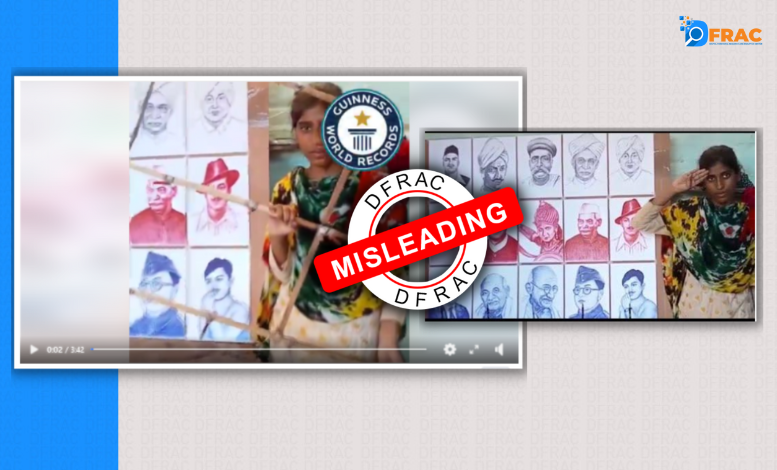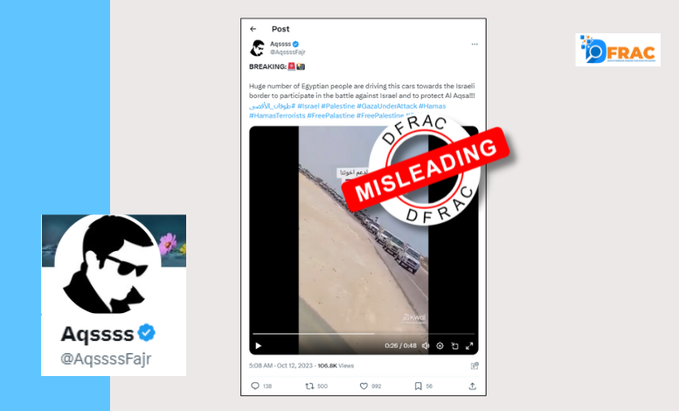Zakir Naik, a polarising Wahabi preacher with a history of contentious statements and radical affiliations, recently made headlines with his visit to Pakistan in October 2024. Officially invited by the Pakistani state, his visit has sparked concern, not just for its timing—just ahead of Pakistan’s hosting of the Shanghai Cooperation Organization (SCO) summit—but also due to the deeper, potentially more sinister motives behind the trip. This report examines the complexities of Naik’s visit, exploring his historical controversies, international movements, and affiliations with extremist groups.
Zakir Naik vs. Traditional Indian Muslims
Naik’s transformation from a preacher of Islam to a divisive figure associated with radicalism began well before his escape from India in 2016. His earlier years saw him rise to prominence through his platform, Peace TV, where his Islamic lectures reached millions. However, his views often strayed from mainstream interpretations, embracing a radical edge that led to accusations of promoting extremism and religious hatred.
His rhetoric escalated over time, resulting in widespread protests in India, particularly among Muslim communities who saw his views as a departure from the peaceful, spiritual Sufi traditions that characterise much of Indian Islam. The Indian Muslim community’s condemnation of Naik, as highlighted by protests in Mumbai (2016), Allahabad (2008), and Delhi (2015), underscores the discontent with his inflammatory teachings. In 2016, the tipping point arrived when one of the terrorists responsible for the Dhaka café attack confessed to being inspired by Naik’s speeches. This attack, which claimed the lives of 22 people, turned Naik into a national security threat in the eyes of the Indian government, leading to the banning of his Islamic Research Foundation (IRF) and the filing of multiple cases against him under India’s Unlawful Activities (Prevention) Act (UAPA).
A Pattern of Controversy:
Over the years, Zakir Naik’s speeches have sparked protests across India.
Mumbai protests (2016): Naik, in his lecture aired on Peace TV, an international Islamic channel, had reportedly “urged all Muslims to be terrorists”. Muslim institution Raza Academy led a protest against him for spreading hate.
Allahabad (2008), Muslim women rallied against his event, accusing him of making offensive remarks about women. His speeches don’t just create unrest—they divide communities.

Delhi (2015): A large group of Muslims protested outside the India Islamic Cultural Centre (IICC), accusing Naik of offending both Shia and Sunni Muslims. They claimed his words undermined religious harmony and threatened national unity. His history shows stirring up tensions and fracturing communities is his real calling, not preaching peace.

The 2016 Dhaka Attack: A Turning Point for Zakir Naik
The Dhaka Café Attack (2016) changed everything for Zakir Naik. One of the attackers admitted to being influenced by his speeches. This incident led to multiple cases filed against Naik, including charges of promoting religious hatred. His Islamic Research Foundation (IRF) was subsequently banned under India’s Unlawful Activities (Prevention) Act (UAPA), cementing his status as a fugitive.

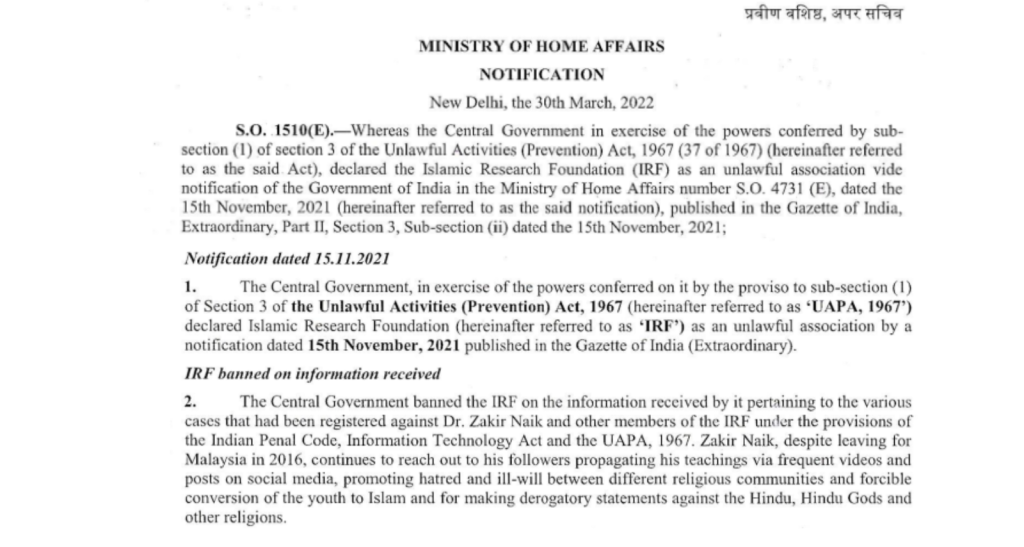
Life in Exile: Malaysia and Further Controversies
After fleeing India, Naik found refuge in Malaysia, where the government under then Prime Minister Mahathir Mohamed granted him permanent residency. While Naik sought to distance himself from the charges in India, controversy continued to follow him. In 2019, he faced a police investigation in Malaysia after making inflammatory comments about the country’s ethnic Chinese population, leading to a public outcry. These comments, which were perceived as racially divisive, prompted the Malaysian government to ban him from giving public speeches. Naik’s continued presence in Malaysia remains a source of tension, with numerous public complaints and ongoing concerns about his influence on the country’s religious dynamics.
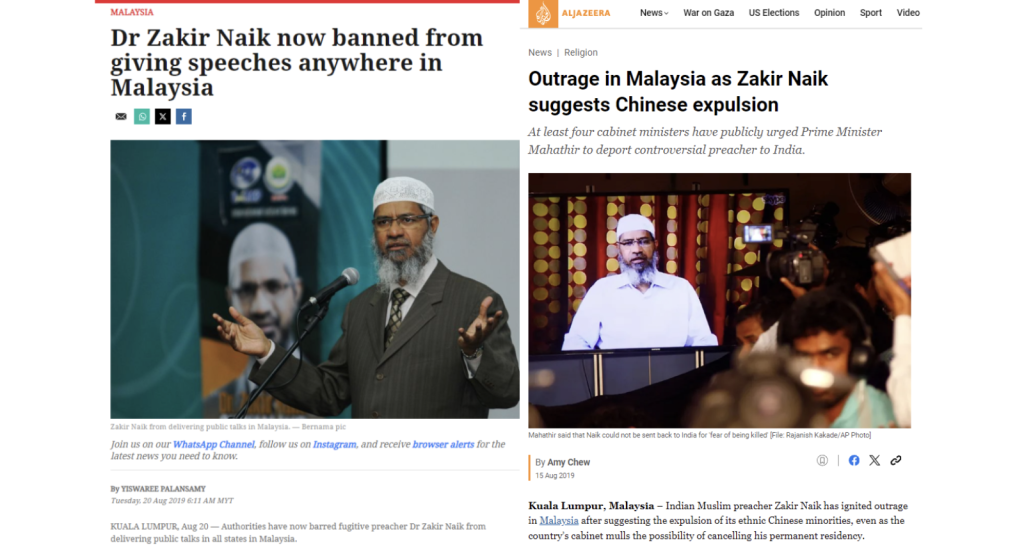
International Affiliations and Troubling Connections
Naik’s international movements have raised eyebrows on several occasions, most notably his associations with radical Islamic figures. In 2022, he met with Omar Abdul Kafi, a preacher linked to the Muslim Brotherhood, whose extremist views have inspired terror acts, including the Stockholm bomber in 2010. His controversial appearance at the 2022 FIFA World Cup venue in Qatar also sparked a diplomatic incident between India and Qatar, though Qatar denied officially inviting him .


Return to Pakistan:
Naik’s visit to Pakistan in October 2024 is his first in three decades. His last trip in 1992 involved a meeting with the radical Islamic scholar and Jamaat e Islami member, Dr. Israr Ahmed, known for his anti-democratic views. During this visit, Naik met with Pakistani state leaders and several ambassadors from key Islamic nations. This high-profile visit signals not just Pakistan’s willingness to host a fugitive preacher but also points to a deeper alignment with radical Islamic factions within Pakistan’s political apparatus.
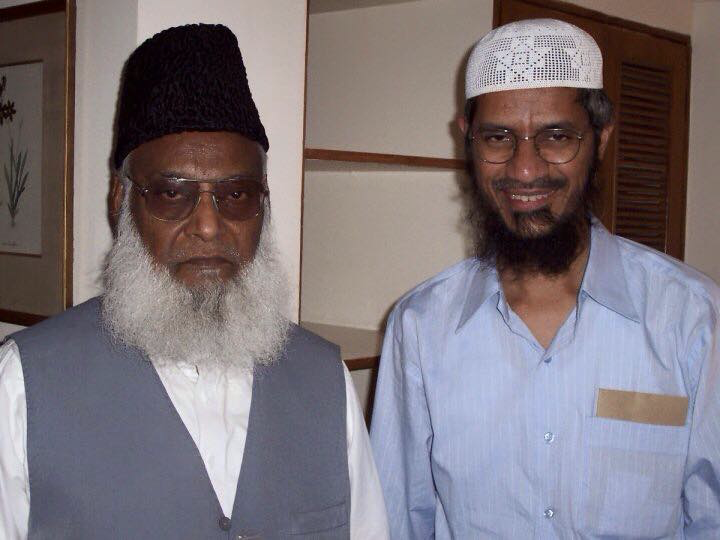
An Alarming Development:
In 2018 The U.S. Department of the Treasury’s Office of Foreign Assets Control (OFAC), along with the Department of State, designated the Milli Muslim League (MML) and seven of its leaders as Specially Designated Global Terrorists (SDGTs) for their ties to the Pakistan-based terrorist group Lashkar-e-Tayyiba (LeT). The designated individuals included: 1. Saifullah Khalid 2. Muzammil Iqbal Hashimi 3. Muhammad Harris Dar 4. Tabish Qayyum 5. Fayyaz Ahmad 6. Faisal Nadeem 7. Muhammad Ehsan But why are we mentioning them, read along…
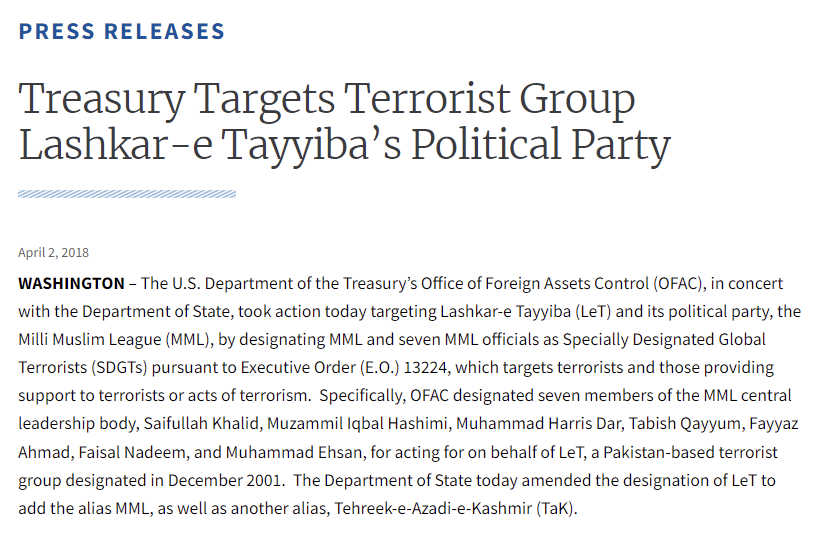
This time, Naik has been in contact with members of the Milli Muslim League (MML), a political offshoot of the designated terrorist organization Lashkar-e-Taiba (LeT). The U.S. Treasury’s Office of Foreign Assets Control (OFAC) designated the MML as a terrorist organization in 2018, citing its leadership’s ties to LeT .
What’s particularly concerning is Naik’s meetings with members of the banned LeT-backed PMML party. Faisal Nadeem, a senior member of the party and a former LeT representative for Sindh, has been promoting Naik’s visit and defending his controversial speeches. Nadeem’s support for Naik signals an alignment with Pakistan’s radical elements, as he has even criticized those who condemned Naik’s controversial statements.
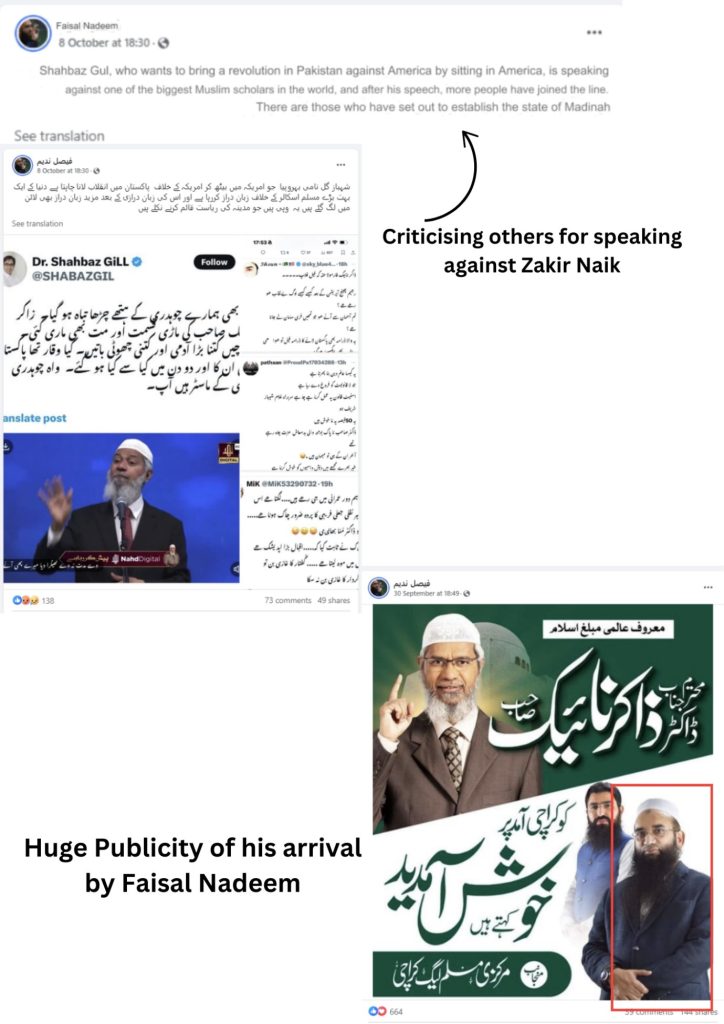
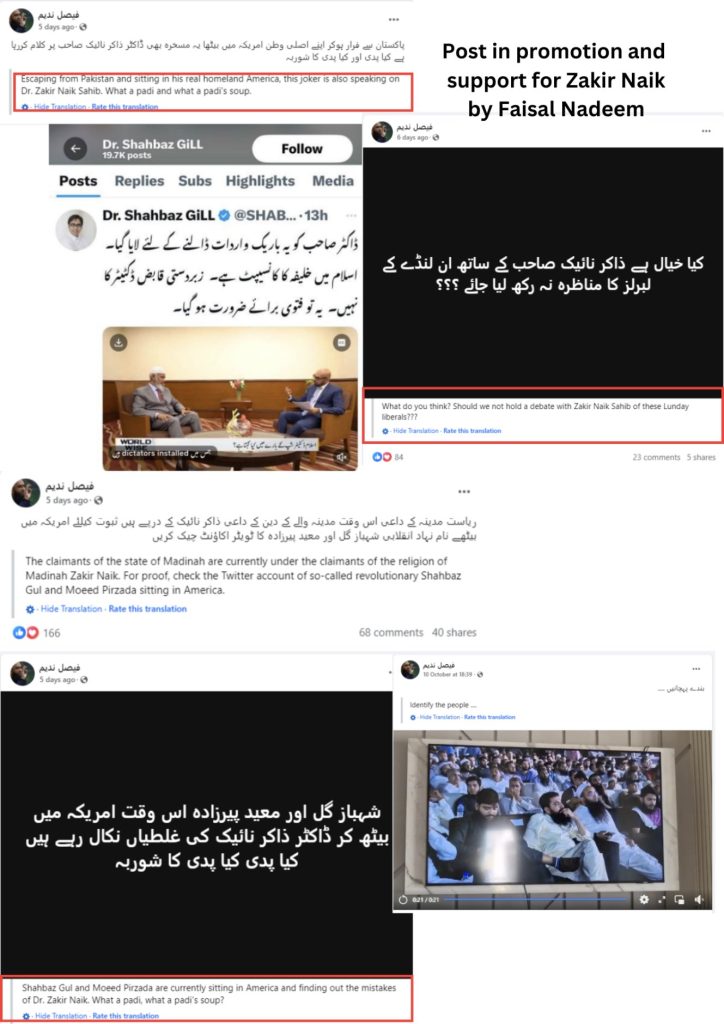
During the event, Zakir Naik refused to present shields to orphaned girls, citing that they were na-mahram (unrelated to him), which conflicted with his beliefs. However, Faisal Nadeem quickly defended Naik’s actions, claiming that he had simply left the stage because he was running late for another event.
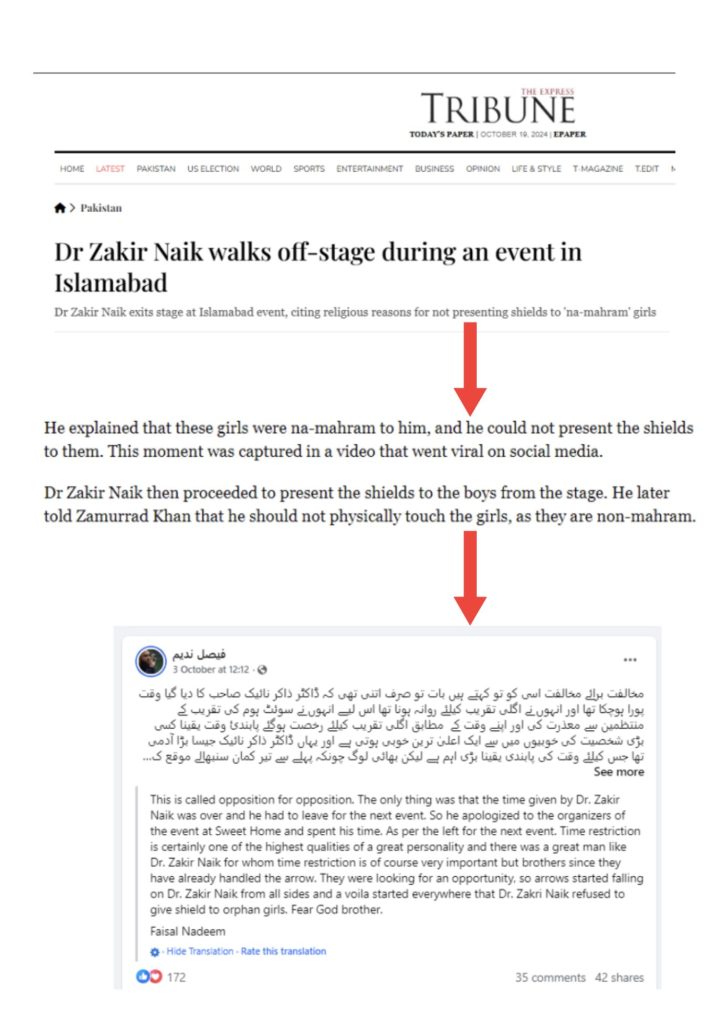
During his stay, Naik also met other extremists, including Muzzamil Iqbal Hashmi and Muhammad Harris Dar, both tied to terrorist organizations. He even interacted with Ibtisam Elahi Zaheer, a radical preacher who has supported extremist groups in Pakistan. These meetings suggest that Naik’s visit is about more than spreading Islam—it’s about deepening connections with radical elements in Pakistan.
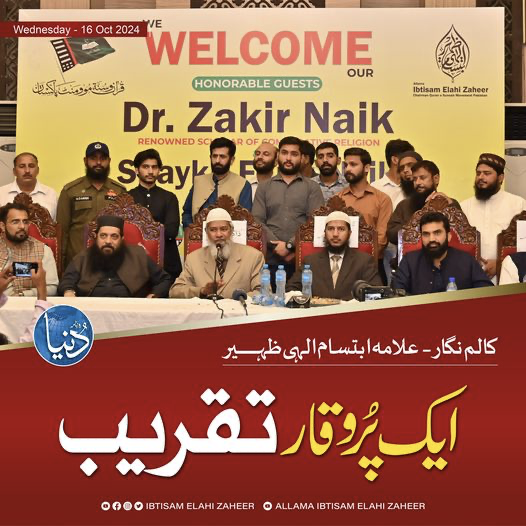
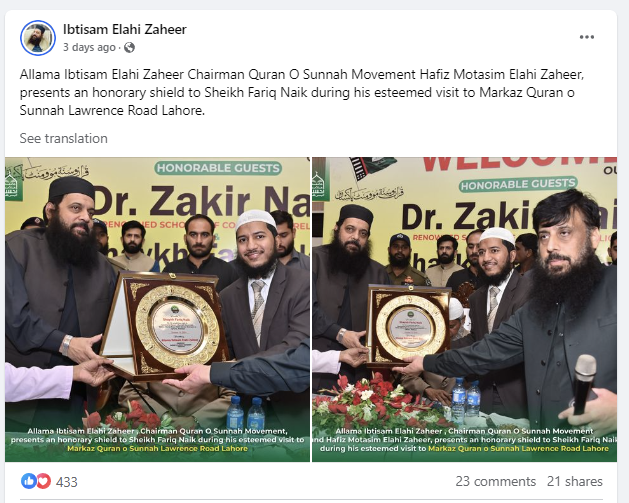
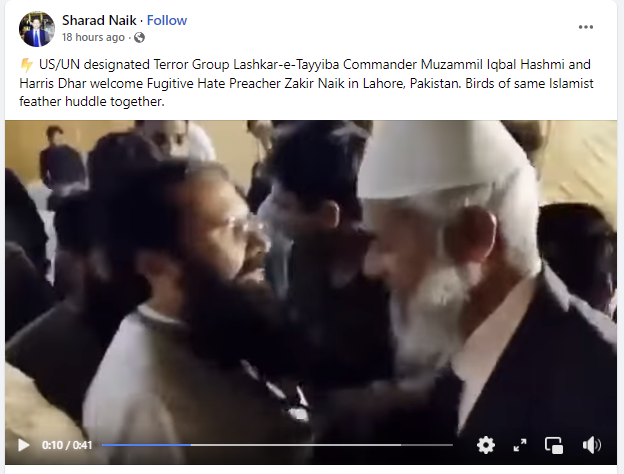
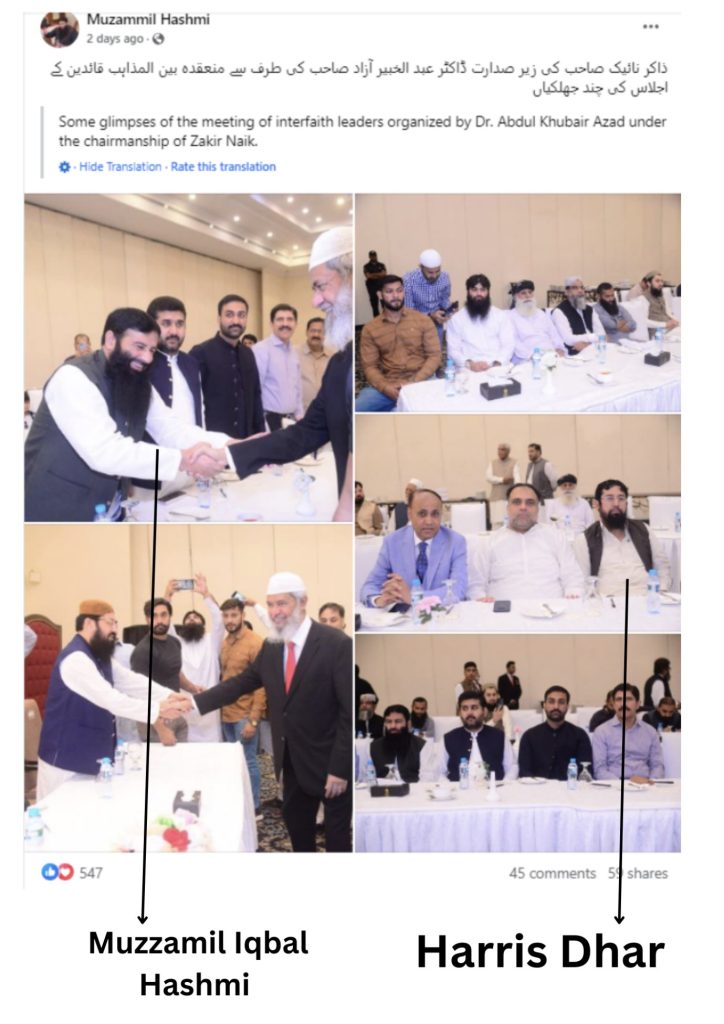
Indoctrination of Future Generations
Zakir Naik’s Collaboration with Pakistani Educational Institutes: Perhaps one of the gravest concerns is Naik’s growing collaboration with educational institutions in Pakistan, creating a pipeline for radical content to flow into the minds of young students, setting a dangerous precedent for the future. Naik’s Islamic Research Foundation has been at the center of creating and disseminating radicalized content in the past. His potential influence on Pakistan’s educational sector could result in the spread of his radical ideologies among young, impressionable minds. This poses a long-term threat, as it risks entrenching extremist views within future generations, undermining efforts to promote peaceful coexistence in the region .
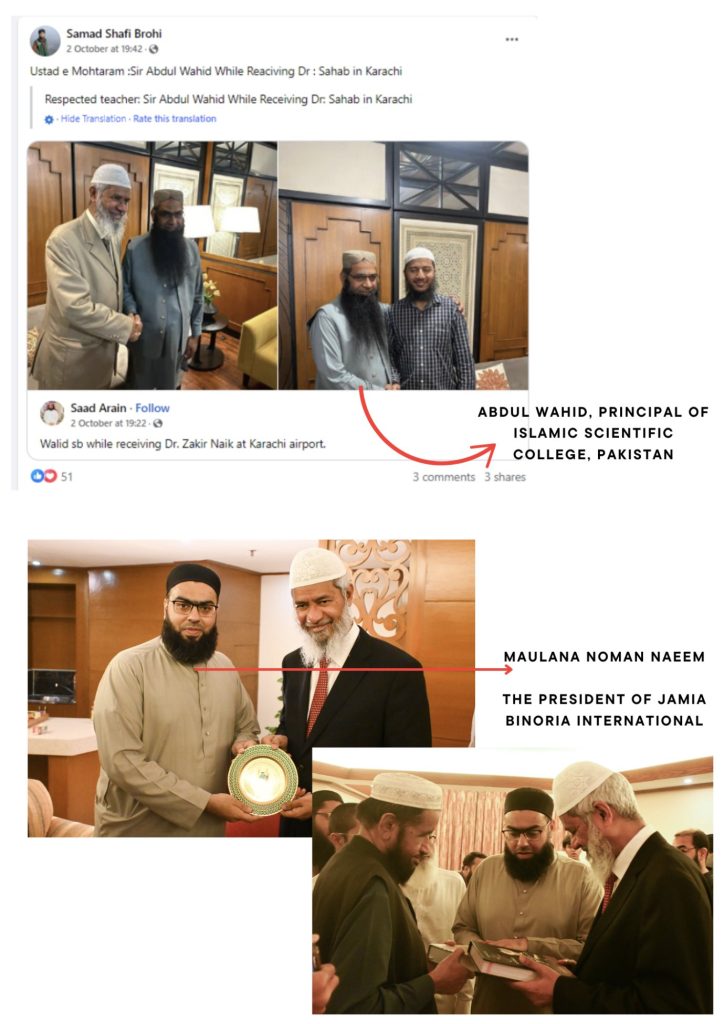
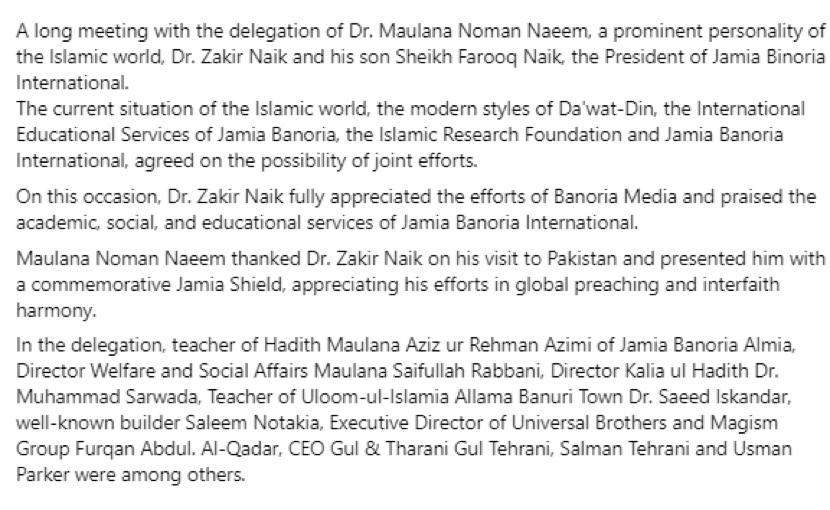
Fueling Sectarianism in Pakistan:
Naik’s visit is far from a peaceful mission. His contentious remarks on sensitive issues such as paedophilia and customs duty have sparked protests in Pakistan. Public outrage has forced him to backtrack, but the damage has already been done, with sectarian tensions simmering beneath the surface.
Does Naik’s Visit Benefit Pakistan? Despite being banned in countries like the UK, USA, Canada, and Sri Lanka, Naik was invited as a state guest. He even received meetings with top officials, including Pakistan’s Prime Minister and Speaker of the National Assembly. But, as protests escalate, it’s clear that Naik’s presence could exacerbate divisions, dragging Pakistan into deeper socio-political turmoil.
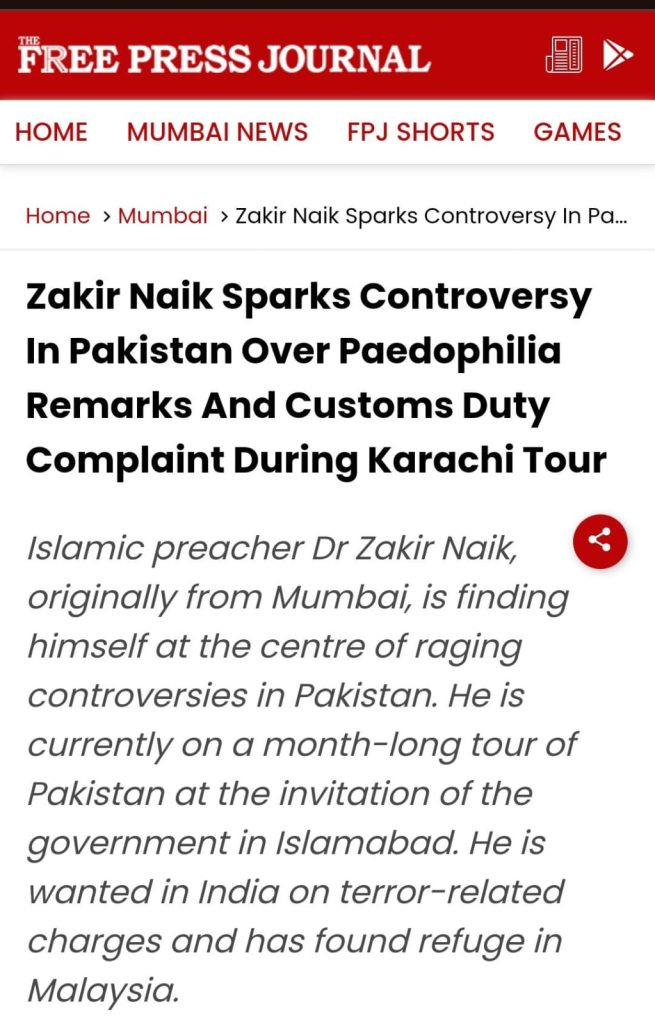
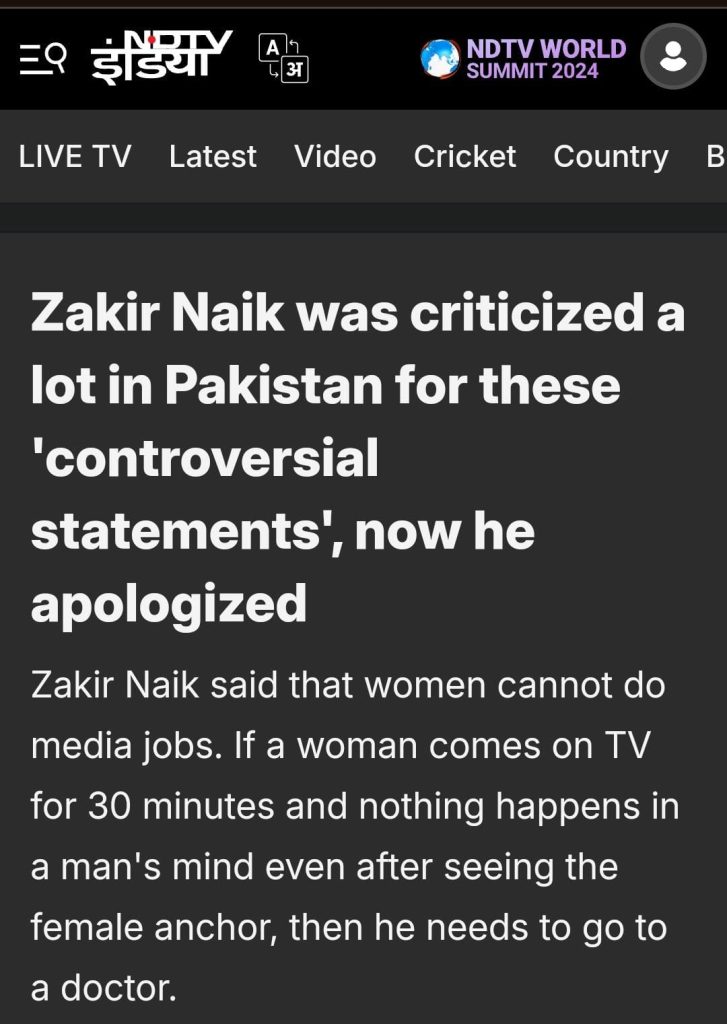
Conclusion
A Visit With Hidden Agendas Zakir Naik’s visit to Pakistan is far from a simple religious preaching tour. His meetings with extremist figures, his ties to designated terrorists, and his plans to influence educational institutions point to a broader, more dangerous agenda. Naik’s presence in Pakistan could deepen radicalization and fuel extremist movements, both in the country and beyond.


